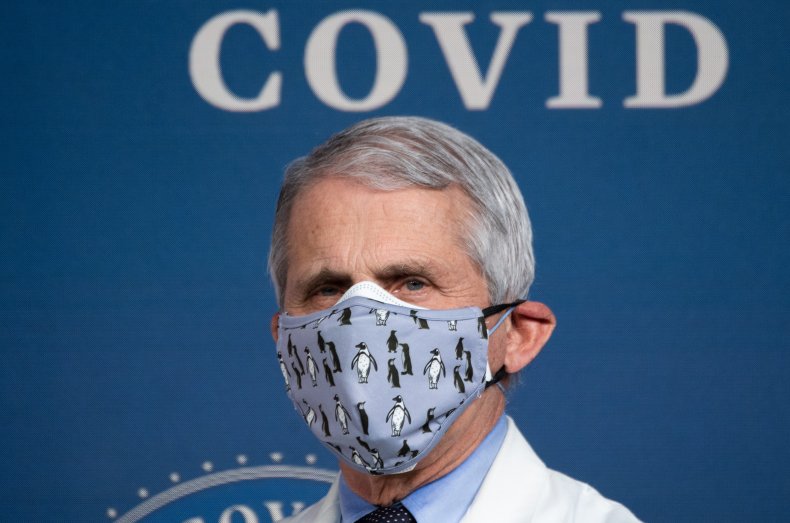Dr. Fauci Says America Is 'Re-Establishing Our Place' in Global COVID Fight
Dr. Anthony Fauci, the United States' leading expert on infectious disease, has told Newsweek that America is "re-establishing our place" in the global fight against COVID.
The day after Joe Biden was sworn in as president, Dr. Fauci has announced the country would be rejoining the World Health Organization (WHO)—reversing a decision by the Donald Trump's previous administration to leave the UN body.
Biden's administration has also pledged billions of dollars for the COVAX campaign, a global vaccine alliance aimed at helping poorer counties inoculate their populations.
"As you know he's [Biden] pledged $2 billion now, and 2 billion more for a total of $4 billion to contribute to the COVAX effort, which I think is very good news," said Fauci. "So we are re-establishing our place in the international global health community.
"Whereas before, there was the pulling out from WHO and I'm very pleased to see that we're back in."
Despite the investment into COVAX, the U.S. has not officially committed to giving away any surplus vaccines to other countries. Other western states, including Britain and France, have said they will donate any left over vaccines to poorer countries. Last week, U.K. Prime Minister Boris Johnson pledged to give away more than half of its extra doses to the COVAX scheme.
Fauci said he does not know how many vaccines the U.S. might give to other countries.
But he said extra vaccines have been ordered "just in case some of the candidates might have failed."
"If they all are successful there very well may be enough vaccine to be able to give away," he said.
As the domestic rollout continues, however, the death toll in the U.S. has topped 500,000, the world's highest of any country.
'Great divisiveness'
Asked about regrets over the last year, Fauci said he was remorseful that a historical pandemic came at a time of "great divisiveness" in the U.S.
"We have not done well, that is for sure, when you have 500,000 deaths. And so many millions of people—over 28 million people—infected. Clearly when we go back and examine this we will—and we will do this very carefully—look at the many things that have occurred that put us into this difficult situation.
"We're a very big country. We have 50 separate states that tend to want to do things according to their own individual decision making. And we have been in a very difficult situation, having a very historic outbreak at a time of great divisiveness in our country, which has not been helpful in responding to an outbreak."
However, the White House official looks to invest in the future to find out more about the illness.
In a White House press briefing earlier this week, Fauci said the National Institute of Health (NIH) will be given $1.15 billion over four years to look at PASC, better known as "long COVID"—a condition in which symptoms persist after the virus has left the body.
The NIH will look into how it affects the population, and how many people have it.


